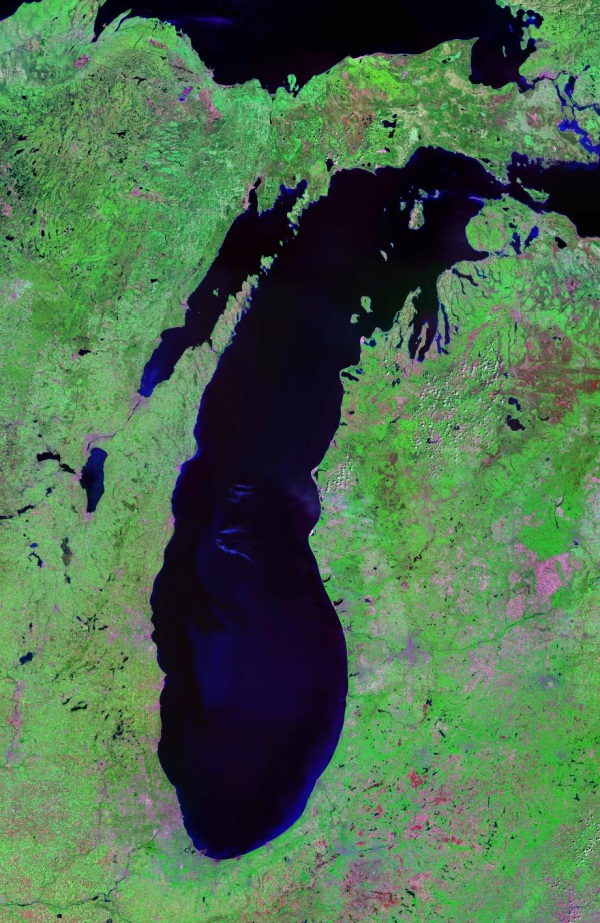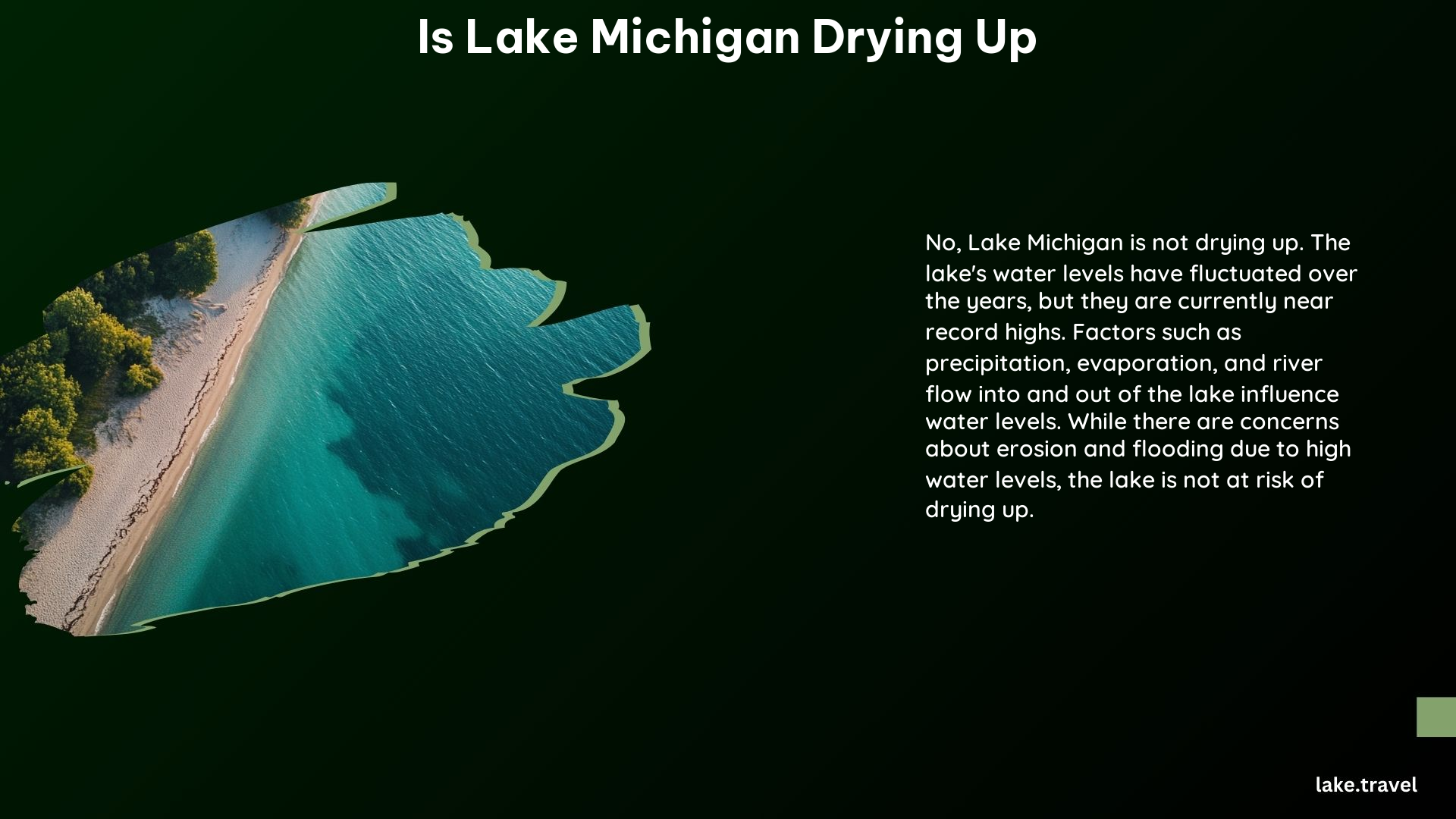No, Lake Michigan is not drying up. The lake’s water level is influenced by various factors such as precipitation, evaporation, river flow, and human activities. While the water level can fluctuate significantly, the lake is not at risk of drying up completely.
Water Level Fluctuations

Lake Michigan’s water level has experienced both record highs and lows in recent years. In 2019 and 2020, the lake reached record-high levels, and in 2024, it dropped by 2 to 3 feet. These fluctuations are a normal part of the lake’s natural cycle and are not an indication that the lake is drying up.
Precipitation and Evaporation

The lake’s water level is primarily driven by precipitation and evaporation. The long-term trend for both precipitation and evaporation has been upward over the last several decades. This means that the amount of water entering and leaving the lake has been increasing, which can contribute to the fluctuations in water level.
River Flow and Human Activities
River flow into and out of the lake, as well as human activities such as dredging, can also impact the water level. For instance, the St. Clair River opening was enlarged in the past, contributing to greater outflows from Lakes Michigan and Huron.
Climate Change
Climate change influences water levels, with warmer surface water temperatures increasing evaporation rates and contributing to lower water levels. However, the overall impact of climate change on Lake Michigan’s water level is still uncertain and subject to year-to-year variability.
Monitoring and Forecasting
Water levels are closely monitored using a network of gauges, and forecasts are issued regularly to help predict changes in the water level. This information is used by various stakeholders, including government agencies, businesses, and recreational users, to plan and prepare for changes in the lake’s water level.
Factors Affecting Lake Michigan’s Water Level
Here are some key factors that can affect the water level of Lake Michigan:
| Factor | Impact |
|---|---|
| Precipitation | Increased precipitation can raise the water level, while decreased precipitation can lower it. |
| Evaporation | Increased evaporation, often due to warmer temperatures, can lower the water level. |
| River Flow | Changes in the flow of rivers that feed into or out of the lake can impact the water level. |
| Human Activities | Activities like dredging, water withdrawals, and infrastructure changes can alter the lake’s water level. |
| Climate Change | Long-term trends in temperature, precipitation, and evaporation patterns can affect the lake’s water level over time. |
Conclusion
In conclusion, while Lake Michigan’s water level can fluctuate significantly due to various factors, it is not at risk of drying up completely. The lake’s water level is influenced by a complex interplay of natural and human-induced factors, and its management requires ongoing monitoring and forecasting efforts to ensure the lake’s long-term sustainability.
References:
– https://www.reddit.com/r/geography/comments/16g539s/how_do_the_great_lakes_stay_so_big/
– https://www.epa.gov/climate-indicators/great-lakes
– https://www.weather.gov/lot/LakeMichiganHighWater
– https://www.youtube.com/watch?v=ftFzeNeCrGo
